Honda Jazz vs Hyundai Kona - Differences and prices compared
Compare performance (122 HP vs 218 HP), boot space and price (23100 £ vs 23100 £ ) at a glance. Find out which car is the better choice for you – Honda Jazz or Hyundai Kona?
Costs and Efficiency:
When it comes to price and running costs, the biggest differences usually appear. This is often where you see which car fits your budget better in the long run.
Hyundai Kona has a slight advantage in terms of price – it starts at 23100 £ , while the Honda Jazz costs 23100 £ . That’s a price difference of around 43 £.
Fuel consumption also shows a difference: Honda Jazz manages with 4.50 L and is therefore slight more efficient than the Hyundai Kona with 4.60 L. The difference is about 0.10 L per 100 km.
Engine and Performance:
Power, torque and acceleration are the classic benchmarks for car enthusiasts – and here, some clear differences start to show.
When it comes to engine power, the Hyundai Kona has a clearly edge – offering 218 HP compared to 122 HP. That’s roughly 96 HP more horsepower.
In acceleration from 0 to 100 km/h, the Hyundai Kona is noticeable quicker – completing the sprint in 7.80 s, while the Honda Jazz takes 9.40 s. That’s about 1.60 s faster.
There’s also a difference in torque: Hyundai Kona pulls slight stronger with 265 Nm compared to 253 Nm. That’s about 12 Nm difference.
Space and Everyday Use:
Beyond pure performance, interior space and usability matter most in daily life. This is where you see which car is more practical and versatile.
Both vehicles offer seating for 5 people.
In curb weight, Honda Jazz is barely noticeable lighter – 1302 kg compared to 1370 kg. The difference is around 68 kg.
In terms of boot space, the Hyundai Kona offers noticeable more room – 466 L compared to 304 L. That’s a difference of about 162 L.
When it comes to payload, Hyundai Kona clearly perceptible takes the win – 490 kg compared to 388 kg. That’s a difference of about 102 kg.
Who wins the race in the data check?
The Hyundai Kona is decisively ahead in the objective data comparison.
This result only shows which model scores more points on paper – not which of the two cars feels right for you.
Costs and Consumption
View detailed analysis
Engine and Performance
View detailed analysis
Dimensions and Body
View detailed analysis

Hyundai Kona
Honda Jazz
The Honda Jazz is a supremely practical small hatch that hides clever packaging and more usable space than it lets on, with friendly styling and an unfussy charm. It’s economical to run, easy to park and perfect for buyers who want reliable, versatile daily motoring without the hassle.
details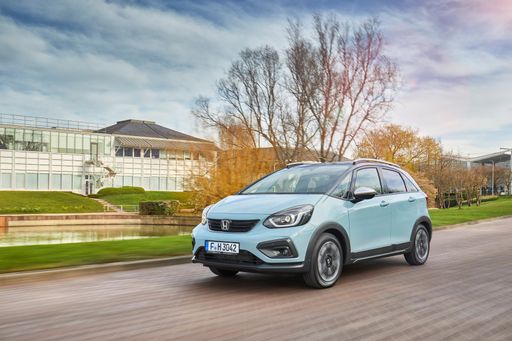
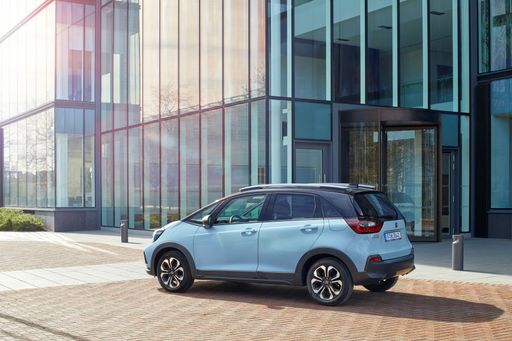
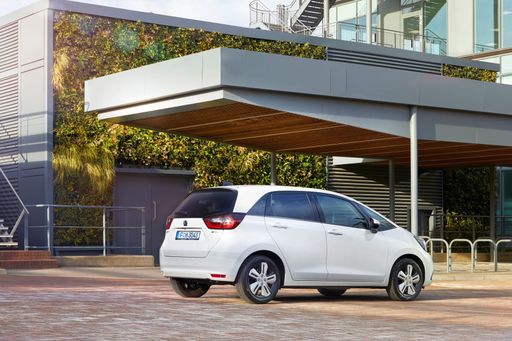
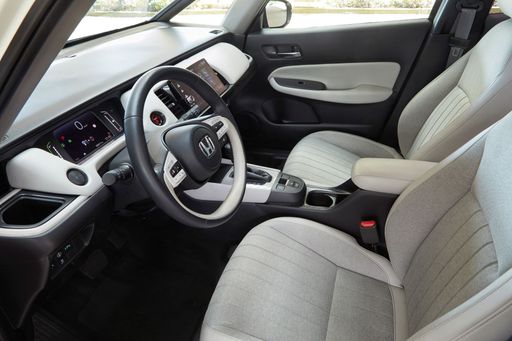
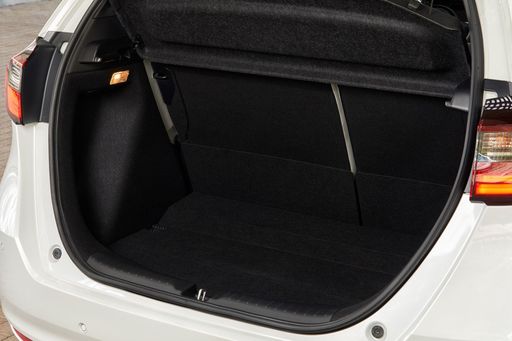
Hyundai Kona
The Hyundai Kona wears its personality on the outside with bold styling and sprightly handling that turns city driving into something a little more fun than a commute. It blends practical space, modern tech and sensible running costs into a compact, stylish package — a smart pick if you want flair without paying luxury prices.
details



Costs and Consumption |
|
|---|---|
|
Price
23100 - 26700 £
|
Price
23100 - 41600 £
|
|
Consumption L/100km
4.5 - 4.8 L
|
Consumption L/100km
4.6 - 7 L
|
|
Consumption kWh/100km
-
|
Consumption kWh/100km
14.6 - 16.8 kWh
|
|
Electric Range
-
|
Electric Range
377 - 514 km
|
|
Battery Capacity
-
|
Battery Capacity
1.3 - 65.4 kWh
|
|
co2
102 - 108 g/km
|
co2
0 - 163 g/km
|
|
Fuel tank capacity
-
|
Fuel tank capacity
38 - 47 L
|
Dimensions and Body |
|
|---|---|
|
Body Type
Hatchback
|
Body Type
SUV
|
|
Seats
5
|
Seats
5
|
|
Doors
-
|
Doors
5
|
|
Curb weight
1302 - 1321 kg
|
Curb weight
1370 - 1773 kg
|
|
Trunk capacity
304 L
|
Trunk capacity
466 L
|
|
Length
-
|
Length
4350 - 4385 mm
|
|
Width
-
|
Width
1825 mm
|
|
Height
-
|
Height
1580 - 1585 mm
|
|
Max trunk capacity
-
|
Max trunk capacity
1300 L
|
|
Payload
369 - 388 kg
|
Payload
420 - 490 kg
|
Engine and Performance |
|
|---|---|
|
Engine Type
Full Hybrid
|
Engine Type
Electric, Petrol, Full Hybrid
|
|
Transmission
Automatic
|
Transmission
Automatic, Manuel
|
|
Transmission Detail
CVT
|
Transmission Detail
Reduction Gearbox, Manual Gearbox, Dual-Clutch Automatic
|
|
Drive Type
Front-Wheel Drive
|
Drive Type
Front-Wheel Drive, All-Wheel Drive
|
|
Power HP
122 HP
|
Power HP
115 - 218 HP
|
|
Acceleration 0-100km/h
9.4 - 9.7 s
|
Acceleration 0-100km/h
7.8 - 11.9 s
|
|
Max Speed
-
|
Max Speed
162 - 210 km/h
|
|
Torque
253 Nm
|
Torque
200 - 265 Nm
|
|
Number of Cylinders
4
|
Number of Cylinders
3 - 4
|
|
Power kW
90 kW
|
Power kW
85 - 160 kW
|
|
Engine capacity
1498 cm3
|
Engine capacity
998 - 1598 cm3
|
General |
|
|---|---|
|
Model Year
2025
|
Model Year
2024 - 2025
|
|
CO2 Efficiency Class
C
|
CO2 Efficiency Class
A, D, C, E, F
|
|
Brand
Honda
|
Brand
Hyundai
|
Is the Honda Jazz offered with different drivetrains?
The Honda Jazz is offered with Front-Wheel Drive.




